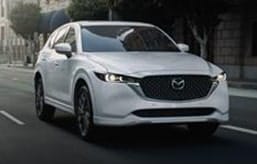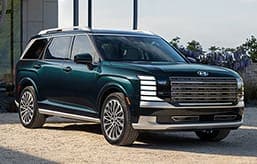- The Department of Energy released a full list of new cars that qualify for an EV tax credit.
- Only a handful of vehicles are now eligible, provided that buyers also meet certain requirements.
- The most recent changes went into effect on January 1, 2024.
Here Are All the Cars That Qualify for EV Tax Credits
More EVs and PHEVs are being added, but the list is still short
The Inflation Reduction Act of 2022 changed which new fully electric and plug-in hybrid vehicles were eligible for federal tax credits starting on April 18, 2023. At the time, the U.S. Department of Energy released a list of which new vehicles still qualified for tax credits when purchased on or after April 18, but new requirements changed that list for all vehicles put into service on or after January 1, 2024. Here are all the EVs and PHEVs that still qualify for tax credits.
Am I Ready for an EV?
- EV ownership works best if you can charge at home (240V outlet)
- Adding a home charging system is estimated to cost $1,616 in
- Edmunds is partnering with Treehouse, an independent provider of home EV installation services. Learn more about the installation services partnership
Vehicles Eligible for Tax Credits as of March 18, 2024
Model Year | Vehicle | Credit Amount | Applicable MSRP Limit |
|---|---|---|---|
| 2024 | Acura ZDX | $7,500 | $80,000 |
| 2023-2024 | Audi Q5 PHEV | $3,750 | $80,000 |
| 2024 | Cadillac Lyriq | $7,500 | $80,000 |
| 2024 | Chevrolet Blazer EV | $7,500 | $80,000 |
| 2022-2023 | Chevrolet Bolt EV | $7,500 | $55,000 |
| 2022-2023 | Chevrolet Bolt EUV | $7,500 | $55,000 |
| 2024 | Chevrolet Equinox EV | $7,500 | $80,000 |
| 2022-2024 | Chrysler Pacifica PHEV | $7,500 | $80,000 |
| 2022-2024 | Ford Escape PHEV | $3,750 | $80,000 |
| 2022-2024 | Ford F-150 Lightning | $7,500 | $80,000 |
| 2024 | Honda Prologue | $7,500 | $80,000 |
| 2022-2024 | Jeep Grand Cherokee 4xe | $3,750 | $80,000 |
| 2022-2024 | Jeep Wrangler 4xe | $3,750 | $80,000 |
| 2022-2024 | Lincoln Corsair Grand Touring | $3,750 | $80,000 |
| 2024 | Nissan Leaf | $3,750 | $55,000 |
| 2023-2024 | Rivian R1S Large pack | $3,750 | $80,000 |
| 2023-2024 | Rivian R1T Large and Max packs | $3,750 | $80,000 |
| 2023-2024 | Tesla Model 3 Performance | $7,500 | $55,000 |
| 2023-2024 | Tesla Model X Long Range | $7,500 | $80,000 |
| 2023-2024 | Tesla Model Y | $7,500 | $80,000 |
| 2023-2024 | Volkswagen ID.4 | $7,500 | $80,000 |
The DoE notes that "the availability of the credit will depend on several factors, including the vehicle's MSRP, its final assembly location, battery component and/or critical minerals sourcing, and your modified adjusted gross income (MAGI)."
While most of these factors determine whether the vehicle is eligible for tax credits in the first place, the individual buyer must also qualify. Per the DoE, buyers must buy the vehicle for their own use and primarily drive it in the U.S. In addition, for new vehicles, your AGI must not exceed $300,000 for couples filing jointly, $225,000 for heads of households, or $150,000 for all other filers. The MSRP must also fall below the maximum threshold set by the bill (note that destination and handling fees, as well as any dealer add-on accessories, taxes and other fees are not included in the MSRP).
All of these rules apply to buyers of new electric vehicles. There are also tax credits available for used EVs and PHEVs — a full list and qualifying information are available on the DoE's website.
There also may be a loophole for shoppers looking to lease (rather than buy) an EV or PHEV that may not be on this list. For full details, check out our article about the ins and outs of electric vehicle tax credits.
Edmunds says
There aren't many all-electric or plug-in hybrid vehicles that still qualify for tax credits, so it is important to know what's available to save you money. If you're shopping for an EV or PHEV, Edmunds keeps a detailed list of state, local, federal, and manufacturer incentives all in one place.



 by
by